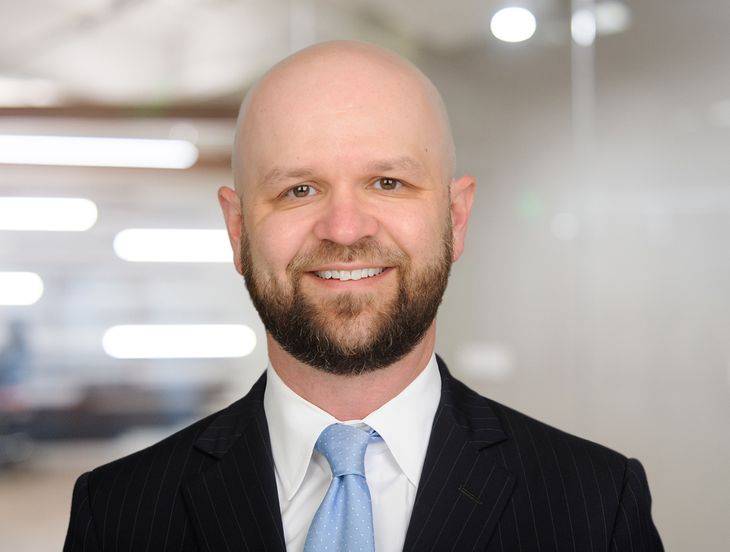WEB EXCLUSIVE - June 2018: The Top 18 Labor And Employment Law Stories
Insights
7.02.18
June 2018: The Top 18 Labor And Employment Law Stories
It’s hard to keep up with all the recent changes to labor and employment law. While the law always seems to evolve at a rapid pace, there have been an unprecedented number of changes for the past few years—and this past month was no exception.
In fact, there were so many significant developments taking place during the past month that we were once again forced to expand our monthly summary well beyond the typical “Top 10” list. In order to make sure that you stay on top of the latest changes, here is a quick review of the Top 18 stories from last month that all employers need to know about:
- SCOTUS Hands Significant Defeat To Both Public Sector Unions And National Labor Movement – In a 5-4 decision on the final day of the 2017-2018 term, the U.S. Supreme Court ruled that the First Amendment prohibits public sector entities from collecting fees from non-union members. The June 27 decision is a significant blow to public sector labor organizations across the country, which rely on these fair share fee arrangements as a significant source of revenue. But this decision will have an impact far beyond public employers. By severely weakening the ability of public sector unions to raise funds, it could also signal an end to the continued assault on all employers—both public and private—through union-sponsored legislation at both the state and local level (Janus v. AFSCME, Council 31) (read more here).
- Labor Board Will Soon Issue New Rule To Solve Joint Employment Dilemma – In a June 5 letter responding to several U.S. Senators who had questions about a recent announcement from the National Labor Relations Board that it could soon start the rulemaking process to clarify the current joint employment standard, Chairman John Ring indicated that a majority of the Board is “committed to engage in rulemaking” and that the NLRB will issue a Notice of Proposed Rulemaking (NPRM) on the joint employment issue “certainly by this summer.” He noted that internal preparations are already underway and that the Board is working toward issuing the proposed rule “as soon as possible.” Chairman Ring expressed hope that the final rule would “bring far greater certainty and stability to this key area of labor law” (read more here).
- Supreme Court’s Same-Sex Wedding Cake Decision Does Not Grant Right To Discriminate – In a 7-to-2 decision, the Supreme Court ruled that a baker’s Free Exercise Clause rights under the Constitution were not properly considered by the Colorado Civil Rights Commission when it held that he was legally required to bake and sell a wedding cake for a same-sex couple. However, the much anticipated decision in Masterpiece Cakeshop, Inc. v. Colorado Civil Rights Commission does not create any sort of safe harbor for businesses defending against bias claims. Instead, this narrow decision is more of a rebuke to the state commission that expressed impermissible hostility toward the baker’s religious beliefs when ruling on his case, requiring the commission to reconsider its earlier action. Most importantly, the June 4 decision certainly does not extend a green light for businesses or employers to freely discriminate against customers, patrons, guests, or employees due to their sexual orientation or any other protected class status. Any business open to the public must recognize that this decision does not grant them the right to treat people differently because of their sexual orientation (read more here).
- What Do Employers Need To Know About Justice Kennedy’s Retirement? -- Supreme Court Justice Anthony Kennedy’s June 27 announcement of his impending retirement, effective the end of July, provides President Trump with the opportunity to reshape the Court in a manner not seen in decades. If the president selects (and the Senate approves) a nominee in the model of the two most recent GOP selections—Justices Neil Gorsuch and Samuel Alito—the Court will shift from usually conservative to reliably conservative overnight. This promises to be the biggest seismic swing in Supreme Court dynamics since President George H.W. Bush replaced outgoing liberal Justice Thurgood Marshall with conservative Clarence Thomas in 1991. What do employers need to know about this imminent shift? (read more here)
- NLRB Counsel Returns Common Sense To Workplace Rules – The National Labor Relations Board General Counsel, Peter Robb, recently outlined the agency’s plan of action for evaluating workplace rules in his latest memorandum to regional offices—and the message is welcome news for employers. In an effort to take back a certain modicum of control and privacy, the June 6 memo, titled “Memorandum GC 18-04: Guidance on Handbook Rules Post-Boeing,” provides a roadmap for employers to defend their commonplace rules, which faced severe attacks under the Obama-era Board. During that period, the Board often presumed that otherwise standard workplace rules were ambiguous in meaning and thus susceptible to attack under Section 7 of the National Labor Relations Act (which prevents employers from restricting employees’ rights to engage in union or protected concerted activity). This memo highlights the shift now taken by the current Board, where workplace rules are to be interpreted in favor of the businesses that drafted them, and thus less likely to be struck down as illegal. Instead of prohibiting any rule that could be interpreted to influence Section 7 activities, the memo instructs that only rules that “would be so interpreted” to influence Section 7 activity are prohibited (read more here).
- California Lawmakers Pass Sweeping New Data Privacy Law – Due to some last-minute bargaining between state lawmakers and proponents of a controversial data privacy initiative, California businesses will soon need to prepare to comply with a new state measure designed to protect private data of consumers. The new requirements take effect in 2020, but now is the time to begin the process of considering the applicability of these rules to your business and ensuring that your organization is in compliance. The new law—passed by the legislature and signed into effect by the governor June 28—could see changes or clarification of certain provisions before it goes into effect. As it stands now, however, the privacy provisions of AB 375 will apply to many businesses in the State of California (read more here).
- Big Changes Coming for Baystate Employers: Paid Family & Medical Leave And Minimum Wage Increases – In one fell swoop, Massachusetts has set in motion a plan to increase its minimum wage to $15.00 per hour and create a comprehensive paid family and medical leave program as the result of a “grand bargain” between employee advocates and representatives of the state’s business community. Governor Charlie Baker signed the bill in a ceremony at the State House on June 28, which will also eliminate premium pay for Sundays and holidays, and make the annual sales tax holiday permanent. What do Massachusetts employers need to know about this new law? (read more here)
- Supreme Court Upholds Trump’s Third Travel Ban – In one of its most anticipated cases in decades, a deeply divided U.S. Supreme Court ruled 5-4 in favor of upholding President Trump’s latest “travel ban” on June 26, delivering a key win to the Trump administration and one of its strict immigration enforcement stances. In its decision, the Court concluded that the president’s executive order—which largely targeted individuals from predominately Muslim countries—did not violate the Constitution’s Establishment Clause by favoring one religion over another. Despite the rhetoric from the president and those in his administration that some claimed to prove religious bias, the Court ruled that the order was a lawful exercise of the authority granted to the president by Congress (Trump v. Hawaii) (read more here).
- New Government Report On Gig Economy Size Raises More Questions Than It Answers – Headlines from mainstream news outlets reported that the June 7 Labor Department report on Contingent and Alternative Employment Arrangementsshowed that the gig economy is shrinking. “The gig economy is actually smaller than it used to be,” says Marketwatch. From the Washington Post: “There’s a smaller share of workers in the gig economy today than before Uber existed.” From the Los Angeles Times: “Share of Americans working as independent contractors dips.” And most dramatically from Quartz Media: “Everything we thought we knew about the gig economy is wrong.” But is that what the data really says? And if so, can we trust it? (read more here)
- Washington State Takes Aim At Class Waivers – Washington Governor Jay Inslee recently issued Executive Order 18-03—a clear rebuke to the U.S. Supreme Court’s recent decision in Epic Systems Corp. v. Lewis and a warning to employers doing business with the State of Washington. Epic Systems essentially resolved a split among the federal circuit courts of appeal by upholding the validity of mandatory class action waivers in employment arbitration agreements, and rejecting arguments that Section 7 of the National Labor Relations Act (NLRA) prohibited such waivers through its “concerted activities” protections. Governor Inslee’s June 12 executive order registers his disagreement with the Supreme Court’s ruling, going so far as to state that Epic Systems “will inevitably result in an increased difficulty holding employers accountable for widespread practices that harm workers.” Thus, effective immediately, the order directs all Washington executive and small cabinet agencies, when making purchasing and procurement decisions, to show a preference for employers that “can demonstrate or will certify” that their employees are not required to sign arbitration agreements containing class action waivers as a condition of employment. This order has potentially large implications for employers who contract with the state of Washington. Such government contractors should consider revisiting any employee arbitration agreements to determine how those may impact any bids for work (read more here).
- Will Congress Do The DEW? What A Proposed Labor-Education Department Merger Would Mean For You – The Trump administration announced an ambitious plan to overhaul the federal bureaucracy that would include the merging of the Department of Labor (USDOL) with the Department of Education. The 132-page proposal announced on June 21, titled “Delivering Government Solutions in the 21st Century – Reform Plan and Reorganization Recommendations,” says that the merger would bring greater responsiveness, accountability, and efficiency, and would better meet the needs of American workers and students. But what impact would it have on the day-to-day dealings for employers and educational institutions? (read more here)
- New Association Health Plan Rule Will Help Gig Economy Workers – It’s a small step, but at least it’s progress. Federal regulators made it easier for gig workers to obtain health insurance on a more cost-effective basis, which should help to shore up the ranks of gig workers and make freelance work a more attractive option for a larger pool of talent.
The USDOL released a final rule on June 19 that allows small businesses to join forces to form association health plans (AHPs). According to Labor Secretary Alexander Acosta, AHPs “are about more choice, more access, and more coverage.” Association health plans work by allowing small businesses, including self-employed workers, to band together by geography or industry to obtain healthcare coverage as if they were a single large employer. The good news for the gig economy? The rules include language that confirms “independent contractors” don’t become employees simply by participating in AHPs with other contractors and freelancers (read more here). - Court Permits Website Accessibility Lawsuit Against Hooters To Proceed – A federal appeals court breathed new life into a disability access lawsuit filed against restaurant chain Hooters, permitting a blind plaintiff who claims he could not access the company’s business website to proceed with his ADA claim—despite the fact that the company was in the midst of fixing its website at the time the lawsuit was filed. The June 19 decision should be a wake-up call to all businesses with websites accessible to the public, serving as a reminder to ensure their sites are ADA-compliant (Haynes v. Hooters of America) (read more here).
- Nevada Employer Pays $3.5 Million To Settle “100-Percent Healed” Claim – Slots chain employer Dotty’s agreed to pay $3.5 million to settle litigation alleging its “100-percent-healed” policy discriminates against disabled workers. The June 5 settlement and consent decree entered in the federal court case of EEOC v. Nevada Restaurant Services Inc. is just the most recent victory in the EEOC’s campaign to target employer “maximum-leave” and “100-percent-healed” policies. This $3.5 million price tag should serve as a reminder to all employers that the EEOC continues to target both the formal written policy limitations on medical and disability leave and employers’ administration of return-to-work requests for reasonable accommodations (read more here).
- Another Gig Economy Misclassification Win Delivered In New York, This Time For Postmates – Sure, there have been some high-profile legal setbacks for gig economy businesses in the area of misclassification lately; the Dynamex case was a punch in the gut for California businesses, and the Pimlico Plumbers case is a massive headache for our brothers and sisters across the Atlantic. But by and large, when courts in the States are called upon to apply the standard “right to control” test in misclassification cases involving the gig economy, businesses have come out on top. And that’s exactly what happened in New York on June 21 as a state appellate court ruled in favor of independent contractor status for a former Postmates driver (read more here).
- D.C. Employers Face Minimum Wage Increase For Tipped Workers – Employers of tipped workers in Washington, D.C. may soon face a tipping point of their own as the result of a voter initiative approved by voters on June 19. If the law takes effect, the minimum rate of pay for such workers will steadily increase for at least the next eight years. However, before the wage hike takes effect, either Congress or the D.C. Council could take action to prevent the increase from taking effect, so employers should stay aware of developments to determine their future obligations (read more here).
- Pennsylvania Proposes More Than Doubling The Salary Level For Overtime Exemptions – The Pennsylvania Department of Labor and Industry recently submitted a proposed rulemaking to amend the regulations that exempt executive, administrative, and professional (EAP) salaried workers from overtime requirements under the state’s minimum wage law. The proposed rulemaking notes that Pennsylvania has not updated its regulations since 1977 and, thus, the salary thresholds “have failed to keep pace with economic growth and the rising nominal salaries of exempt salaried workers.” In response, the proposed regulations would increase the EAP salary threshold from the current $250 per week to $610 per week ($31,720 annually), then to $766 per week ($39,832 annually) one year later, and finally to $921 per week ($47,892 annually) one year thereafter (read more here).
- Federal Legislation Introduced To Study Tax Concerns For Gig Economy Workers – The gig economy is booming and politicians continue to take notice. To that point, Senator Mark Warner (D-Virginia) just introduced legislation designed to tackle tax issues that arise for gig economy workers. Senator Warner has historically been a supporter of the gig economy and has previously introduced legislation designed to encourage portable benefits for such workers. In fact, his website lists the gig economy as one of his top priorities. His latest legislation, announced on June 20, would result in research from the U.S. Treasury over how tax issues for gig workers have changed throughout the years, including on issues such as information reporting, withholding, and tax filing. The end result is intended to help lawmakers work towards making tax compliance easier for gig workers, specifically those who earn “non-employer business income.” Because gig workers are traditionally treated like independent contractors, they don’t benefit from tax withholdings in the way that regular employees do (read more here).
If you have any questions about these developments or how they may affect your business, please contact your Fisher Phillips attorney.
This Legal Alert provides an overview of specific legal developments. It is not intended to be, and should not be construed as, legal advice for any particular fact situation.
Related People
-
- Suzanne K. Bogdan
- Partner
-
- Theresa M. Connolly
- Partner
-
- Benjamin M. Ebbink
- Partner
-
- Andrew J. Hoag
- Partner
-
- Allison Kheel
- Associate
-
- Todd A. Lyon
- Partner and Labor Relations Group Co-Chair
-
- Lisa A. McGlynn
- Partner
-
- Richard R. Meneghello
- Chief Content Officer
-
- Catharine Morisset
- Partner
-
- Joshua D. Nadreau
- Regional Managing Partner and Vice Chair, Labor Relations Group
-
- John M. Polson
- Chairman & Managing Partner
-
- Shanon R. Stevenson
- Partner
-
- Travis W. Vance
- Regional Managing Partner













